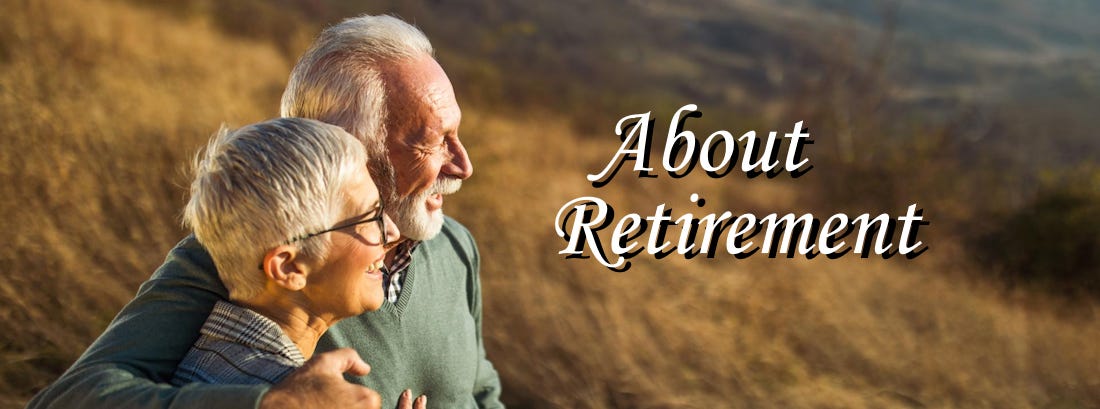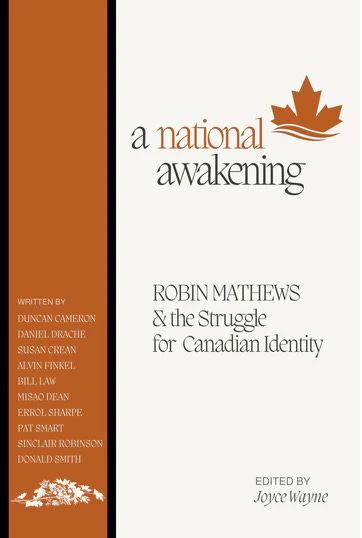
Welcome to About Retirement, Joyce Wayne's bi-weekly newsletter about thriving during retirement. Please click on the BLUE subscribe button to receive the free post in your inbox. |
Nothing is a Miracle; Everything is a Miracle
This month, I’ll turn 74 years old. During the 1950s, when I was a child, 74 was considered old: in fact, very old. Today, we believe that ageism is evaporating and that older people can live active and appealing lives well into their nineties. Yet I’m not entirely convinced that ageism hasn’t stood the test of time as we continue to push ourselves much harder than we might if we weren’t trying to live up to an unattainable standard.
Re-framing Ageing Labels
It’s true; we don’t wish to be called seniors. In her new book Still Life at Eighty, octogenarian Abigail Thomas begins by saying: “The word I hate most is seniors. I was a senior once, but it was a long time ago and I graduated. The label sounds condescending, all of us lumped together with lots of discounts and no identities…Given my druthers, I would rather be referred to as an elder. Elder brings with it the suggestion, no, the near certainty of hard-won wisdom.”
I must ask if it does. Certain friends, women I admire, will be aghast when they read that I’m admitting my age. Some have advised me never to reveal my age. I have good friends whose age I’ll never know and I would never inquire for fear of prying. Lately, however, I’m approaching age differently –as something to be proud of, not ashamed. When I learn that a friend or colleague is turning 80, I’m thrilled that she is still driving about town, attending numerous social events, sometimes working on projects, attending plays and movies, and just plain enjoying her life. As for any of us becoming wiser with age, I’m not certain.
Embracing Ageing Gracefully
If I’m being honest, I wouldn’t say I’m any wiser than I was at 40 or 50. I’m different. Less judgemental, less excitable and more at home in my own skin. What I have learned is to live and let live and to keep quiet when a stern or mocking comment wouldn’t help anyone. Now, social gatherings are more attractive to me as I’m not burnt out from working five or six days a week. My book club and my Scrabble club are highlights. Some nights, I cook; other nights, my husband cooks; other nights, we order in or eat out at a favourite restaurant. Dinners with friends are wonderfully enjoyable. Writing is more pleasurable than it has been for years. I’m not pushing myself to produce as much as I did when I was younger while relishing the work that is completed.
As Abigail Thomas remarks: “I don’t mind old. I’ve been around long enough to call a spade a spade. At seventy-nine, a little overweight, plopped in a chair, I have never been so at home in my body.” I couldn’t agree more. If there is ever a time, this is the moment to accept ourselves for who we are. Chances are we’re not going to change profoundly, and it’s an appealing thought to review the important things we’ve accomplished: our children, our careers, our care for others, our participation in civic life and our weathering difficult times while enjoying the good times.
When we reach our seventies, there can’t be many people reading this post who haven’t faced enormous obstacles and struggled to get past them. Many have faced financial and medical crises. Crises in the family or at work. We’ve managed the strains of a long-time marriage or faced being single by making a life of our own. Many of us have raised children and watched them grow into sensible, accomplished adults with children of their own. Observing the obstacles now facing millennials, establishing ourselves as independent adults was less challenging when we were young adults, and I’m grateful for the age in which we were born.
Cherishing Nostalgic Memories
It’s time to lean back, enjoy and permit ourselves to remember the good times. Last month, I attended the Bob Dylan biopic, A Complete Unknown, not once but twice. It was the first time in my life that I’ve seen the same movie more than once in the same week. I enjoyed watching it more the second time than the first. Nothing could remind me more of my adolescence and young adulthood than hearing Dylan’s songs and watching Timothée Chalamet perform them. I idealized Dylan’s music as it became the soundtrack to my young adulthood. Tunes like “Don’t Look Twice” or “Like a Rolling Stone” have stayed in my mind all these years. I remember hearing the first Dylan album played on an old-fashioned record player. No stereo, no discs or cassettes. Just the power of the words and the music with the needle scratching away at the dusty vinyl.
Overcoming Ageism and Embracing Freedom
So don’t hold back. Allow yourself to savour it all. Ageism still casts its shadow, but that doesn’t mean we can’t do as we please. Dress as we’d like. Spend time listening to the songs of our youth. Spend time with friends and family that we love. Or do nothing. Some of the best times I’ve experienced during the last year are days spent dreaming –with no agenda to keep me on course. Falling off course is something I’ve not let myself do until recently, and I highly recommend it. The freedom of choice in ageing is empowering, and it’s a privilege we should all embrace.
These days, nothing much embarrasses me. I don’t worry about what I’m missing. My expectations of myself and others are no longer set in stone. I no longer answer my landline just because it rings or force myself to finish reading a book I’m not enjoying. I can’t recall the last time I felt guilty.
It is the right time for whatever comes next; how you greet the future depends on you. As Albert Einstein remarked: “There are only two ways to live your life. One is as if nothing is a miracle. The other is as though everything is a miracle.” Seeing the world through an optimistic lens can make the journey of ageing a truly miraculous one.
If you liked this post from About Retirement, why not subscribe?



